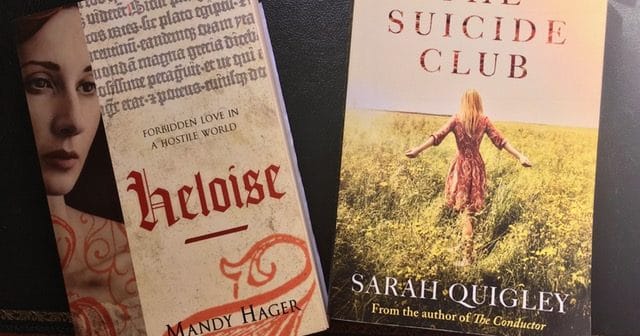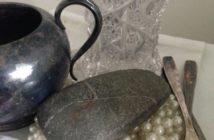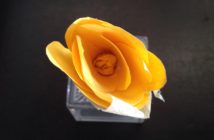ARTbop Contributions Editor, Marcus Hobson, says it is always good to feature new books from New Zealand writers in our column. This time I have two which share a common theme of being set in Europe, one contemporary fiction and one a piece historical imagining.
The first is Sarah Quigley’s latest, The Suicide Club. I saw the book criticised in one review for glamorising the problem subject of suicide. I take an alternative stance, mainly because this is fiction. While I fully understand how much of a problem suicide is in New Zealand society right now, I think having books in which it is a theme just helps to put it more into the limelight. Also, this is a brilliantly written story. The characters are beautifully drawn, the writing is alive with wonderful language and the plot has you on the edge of your chair. You are moved to tears and to laughter. What more could you ask for from a novel? Even the first line has you completely drawn into the story, “In the minutes before Bright O’Connor tumbled nineteen floors to his death…”
The Suicide Club begins by charting the lives of three individuals, lives thrown together and then interwoven by the twisting serpent of the plot. Bright is a red-haired, flamboyant young writer who throws himself off a twenty story building. Gibby is the ungainly young man who has left his newspaper cart at the foot of the same building so that he will unwittingly save Bright’s life. Lace is the beautiful young woman who everyone desires but no-one can reach. She is friends with Gibby and so will eventually encounter Bright. All three are propelled for different reasons to an experimental institution run by the enigmatic Dr Geoffrey in the remote countryside of Bavaria. They all have a lot to learn about each other but more about themselves and their inner motivations. The institution they attend for a few weeks allows us to unfold the depths of their psychoses and also allows them to encounter each other properly for the first time.
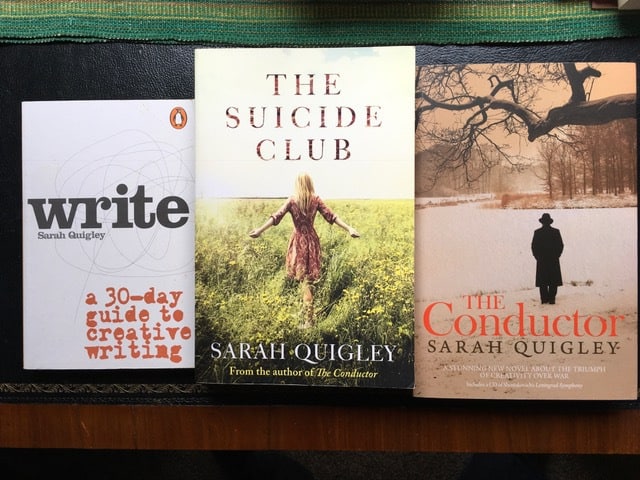
Sarah Quigley’s latest novel set among some of her other works
The Suicide Club is a great tale of psychosis and friendships, full of humour and beautifully written. The characters of Bright, Gibby and Lace are not a million miles for people we may have met at a party or in a university tutorial. It is their convincing reality that makes the novel work so well. We are compelled to like them, to laugh at Bright’s clever jokes and fall in love with Lace’s beautiful looks and to sympathise with Gibby’s awkwardness.
The second novel is a venture into adult fiction by Mandy Hager. Heloise is a dense work of historical fiction, based on a true story and rich with actual quotes from the main characters. The story is a familiar one, Heloise and Abelard were lovers in the same vein as Dante and Beatrice or Romeo and Juliet, but different because they were also thinkers, scholars and deeply religious.
They lived during the twelfth century, with Abelard being born only ten years or so after the Normans had swept to power in England at the battle of Hastings. It was a primitive time, as Europe emerged from the period known as The Dark Ages, but one in which we see the beginning of scholarship and great religious development. All over Europe great monasteries began to flourish and huge churches and cathedrals were being built. From a historical perspective the times were full of wars, crusades, battles and power struggles, but we hear little of everyday life. So the survival of the letters between Heloise and Abelard are a unique insight into more ordinary concerns, and in particular the expression of personal love when everything else spoke only of the divine.

Mandy Hager’s new novel is the latest of many works about Abelard and Heloise
I think Heloise is a remarkable achievement, turning the story into a full scale novel, but also one which catches both the spirit of the time and the dangers that lurked for all the parties concerned. It also tells the story from Heloise’s viewpoint, not Abelard’s.
When all said and done this is essentially one thing, a love story, but it is such a complex story. Having fallen in love the two will eventually be forced to separate, but both will struggle with their emotions for each other for the rest of their lives. The book captures both the length and the struggle of that relationship, as it unfolds over decades.
I enjoyed the story for its details but it is certainly not a quick book to read. The lists of real characters and places named in the text as well as a list of sources and references at the back show that we are reading a work of erudition as well as great beauty.

ARTbop Contributions Editor Marcus Hobson and Parewhati Taikato Curator of the exhbition Rules of Engagement by Tracey Tawhiao to support the performance by Ria Hall of the same name.
YOU CAN FIND MORE OF THE WORK OF MARCUS HOBSON’S CHOICES, WORDS & ALSO REVIEWS IN BEEN & SEEN
AND MAKE SURE YOU READ THE LONG FORM ARTICLE CONTRIBUTED BY THE TALENTED LORETTA CRAWFORD: RIA HALL IS COMING TO THE TAURANGA ARTS FESTIVAL http://artbop.co.nz/ria-hall-coming-tauranga-arts-festival/
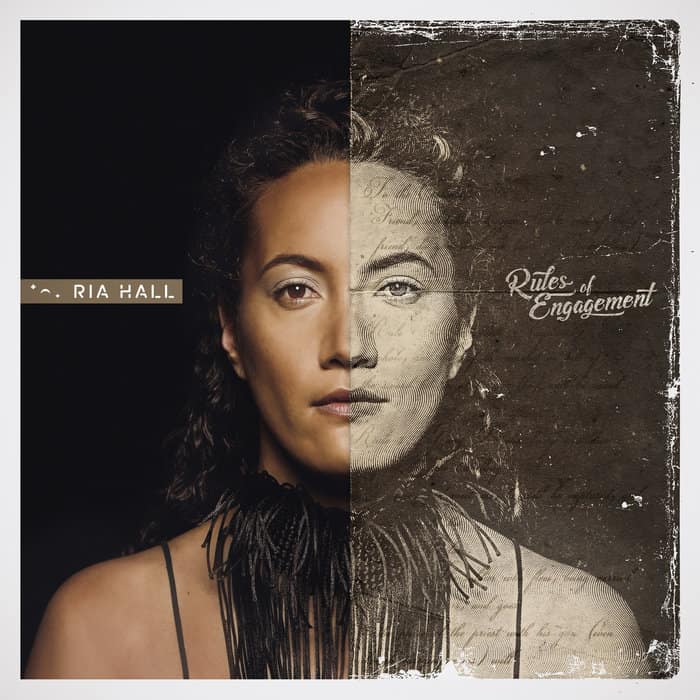
Ria Hall’s album The Rules of Engagement
AND PUTTING OUT A CALL FOR ARTISTS & ARTISANS FOR THE AFFORDABLE ART & ARTISAN FAIR
ARTbop and The Black Sheep Bar & Grill have gotten together to create the ‘Affordable Art & Artisan Fair’ which will take place on the last Sunday of every month excluding December starting on the 26th November and run from 11am – 3pm.
This event will be open to local artists and artisans who produce high quality, original, handmade pieces. We are looking for a commitment to four fairs (Nov, Jan, Feb & March) at a cost of $40 ($10 per fair). The great news is there will be no commission.
The Black Sheep has a large outdoor area ideal for setting up trestle tables. Much of it is under cover. There is also a big area where marquees can be set up. Although the venue is large there will be a selection process if there isn’t room for everyone.
ARTbop will be conducting a widespread advertising campaign and this, along with the good food at Black Sheep and the wonderful ambience of the venue, are sure to make this fair a huge ongoing success. Don’t miss your chance to be a part of it. Email your details including your website to Birgitt at aaafair17@gmail.com
ARTbop
the Bay of Plenty’s creative arts magazine!
read us online anywhere, anytime!


